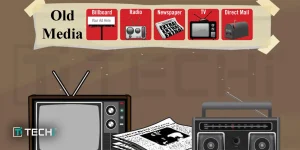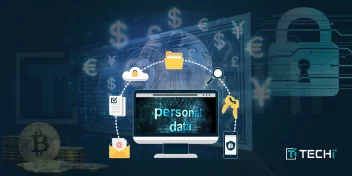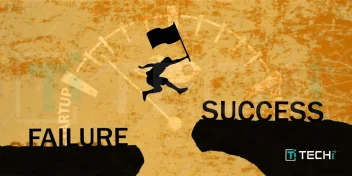Though we have, over the past few years, become accustomed to rather strange, aggressive ideas from those who run the movie and music businesses, the latest move from the RIAA and MPAA is a little astounding.
Today, the Electronic Frontier Foundation, an organization dedicated to defending internet users’ rights, outlined some of the suggestions made by the media conglomerates for protecting their content. They, along with many other players, were asked to weigh in on how intellectual property should be treated in a changing, networked world.
And you know what the MPAA and RIAA suggested? Well, among other things:
- Anti-infringement spyware to be installed on users systems
- Filtering technology on internet service provider’s networks to prevent the spread of copyrighted material
- ‘Inform’ and ‘educate’ (i.e. harass) entrants to the US about the ‘dangers of pirated material’
- Intimidate countries that do not agree with these policies, using US economic clout to threaten them
- Use federal resources to employ agents to crack down on copyright thieves
So, how does that sound? Having spyware installed on your system and monitoring what you’re watching? Having your ISP filtered and throttled so that the MPAA and RIAA can control what gets distributed around the internet? Super, right?
But it isn’t simply the stunning sense of entitlement and invasiveness that’s the issue here. There’s something bigger at stake than simply ‘this is not how you should treat your customers’.
What the RIAA and MPAA have failed to understand is that new technologies like the web don’t simply represent new ways to pirate material – they are part of a seismic change in culture. By failing to understand that this is a cultural and not only technological or economic shift, media businesses are on the brink of becoming obsolete due to an obsession with control.
Technically speaking, you might articulate the change in how we think of these things by talking about ‘the economics of scarcity’ vs. the ‘economics of abundance’.
See, physical media is hard and expensive to create and distribute – not only do you have to find the materials to press CDs or print books, you have to then distribute them on trucks and trains and what-have-you. This creates an economic system based on scarcity, or as we more traditionally think of it, supply and demand. Limited by physical constraints like materials and labor, you make a certain number of things and then you set the price based on how many people want that thing.
But when you switch to digital, this scarcity often disappears. An MP3 or movie file or eBook is just ones and zeroes. After the initial costs of creation are done with, creating a new copy costs almost nothing. Suddenly, things are abundant – there is no physical limit on how many of something can be made – and this changes things.
But that’s only the economic side of things. Culturally, there has also been a shift in how we think of accessing content like TV shows or films or music. Whereas once it seemed to make sense to save our pennies for new records or films, it’s now much harder to justify that expense because there is so much available for free, legitimately or not. You know this – it’s everywhere around the web, because no-one can control the spread of information.
People will often talk about this in terms of ‘stealing’ or ‘entitlement’ – which has it merits – but also misses the point. Once a person has experienced the freedom of something like Napster or Bittorrent, it’s hard to put that genie back in the bottle. It isn’t about ‘thieving’ as much as it is this: once you know what it’s like to access culture with such freedom, going back to the basics of plunking down 20 bucks for a iTunes movie you can’t copy, can’t take to your friends house or can’t watch on your PS3 not only feels strange, it feels plain backwards and absurd.

By attempting to replicate the scarcity model in the digital age, media businesses have made clunky DRM’ed products and have alienated consumers, and they are voting with their wallets. It might seem sensible to try crack down on consumers, but it’s like trying to nail jello to wall: you can’t do it, and it wasn’t a very good idea in the first place.
That may be controversial – and might even seem to support piracy – but that isn’t the case.
There are solutions to this problem, among the best of which is something like ‘monetizing the pipes’ – i.e. charge for the distribution. Another option is something like eMusic, which makes you pay a set amount for a certain number of MP3s a month. More options include what Mike Masnick calls ‘finding other scarcities’ like musicians making money from live shows and merchandise but giving the music away for free.
But the point boils down to this: the world has changed. The internet works on principles of openness and exchange, and information and content ricochet around at an amazing rate. You just can’t control that without unfairly limiting people’ experiences of the web. This is what the MPAA and RIAA have failed to understand. They are still working in a mindset that is based on scarcity – we have a limited amount of product, and we have to protect it – and that’s an ideal that certainly was noble and fair years ago.
But when culture and technology have changed so drastically, and digital information fundamentally works through copying and spreading, it’s also a naive one. Rather than trying to lock down the entire internet and the exchange of media, those concerned should be looking to establish new business models or new products that draw people in (like Avatar, for example).
After all, if they don’t, it’s not we who will lose. People will continue to create, and they will find ways to finance and distribute them using new tech. The MPAA and RIAA, on the other hand – well, it may already be too late for them and the lumbering dinosaurs who lead them.





Kirru
If the RIAA gets their way, we’ll one day have to go to war with a country just because one of their citizens illegally downloaded REO Speedwagon.
johnny
What chudez said…
and Brian – for music think one word – SPOTIFY
Frank Reese
I’m glad to see there’s one writer who understands that piracy isn’t the answer. The only issue though is that you make it sound that because of napster there should be an all you can download model. But while people are trying that (the new napster for instance) it is a flawed argument.
If we can agree that downloading a song you don’t own is illegal (as it is copyright infringement) then I can a comparison. If I steal your car/food/recipe that doesn’t mean an industry needs to come up with a business model, so I can continue to steal. If I pay someone to commit murder, that doesn’t mean I should still have that ability legally. Just because I infringe on a copyright one time, doesn’t mean I should still get the same goods and services at that price later on.
Just because we were given something that was pretty much a way to break the law doesn’t mean they should be expected to support it. That doesn’t mean they shouldn’t change because of the new internet age… they definitely should.
The thing though is that while the media industries have to change. The biggest issue is that we the consumers MUST CHANGE. If you honestly want the industries to change, then stop supporting the industries. And this is the important part: STOP STEALING FROM THEM!
If you honestly want a change, give up the medias until you find a model that you agree with (there is a number of them out there that are good). However if you continue to steal music you arn’t helping the situation, you arn’t showing them the error of their ways, you’re only promoting their agenda. Why should they stop working on DRM when you are breaking the law?
Get commited to change, give the everything they want. No theft. But at the same time speak with your money as well or in this case lack of it. It might be hard, but it’s the only move we as “consumers” should be making to fight them.
Phil
Fundamentally, It’s a even more important change than from scarcity vs. Abundance.
What the internet really does in its most developed form is to give everyone the possibility of being a producer of culture, rather than a consumer. And the whole discussion should be who has the right to control culture; currently large companies have allocated an unfair amount of rights that sometimes are pursued in absurd cases.
What we have to realize is that stories have always been told, and music has been played through the ages – and that the idea of someone “owning” an idea is absurd and a restriction of someone else telling the same story and singing the same song – also is counter-productive to civilisation.
(a crackdown of rightsholders would have prevented for example “numa numa guy” of ever making his cultural mark in internet history).
My point being is that we have to decide between “the right to own an idea and the restriction of creativity”, or “embracing that cultural creativity is good for us all – and that the right to be creative should be a basic human right”.
cj
I would not steal a movie, or a song. But I do believe that the RIAA and MPAA are out of touch with reality when it comes to their customers. DVD’s are becoming a new way for the MPAA to make money by putting many endorsements of new movies on before the actual movie. Disney movies are real bad about this on a few of their DVDs. It use to be you saw just one movie preview. Now there are up to five. Some of the DVD’s allow you to skip, but many don’t allow you to skip at all.
My other gripe is the fact sometimes you will come across a DVD that wont even play on your DVD player. It’s gotten to the point that your better off renting the movie first to be sure it plays.
My next gripe is on the layout of DVDs themselves. I buy DVD’s that contain “Seasons” of shows / movies. Some the setup is fine others, it’s a hassle to watch. Sometimes I just wonder … “What were they thinking?”
As for CD’s My biggest gripe is they have a lot of nothing on them to listen too. There may be one good song on the whole CD. Back way years ago… you could buy a 45 record that solved this problem, it contained always one or two songs. Now your stuck dishing out thirty bucks for just the one song on a CD.
If you buy the song online you risk loosing that song either to a crash of your computer, or to the company you bought it from going out of business. Either way… you are screwed. So I don’t buy online.